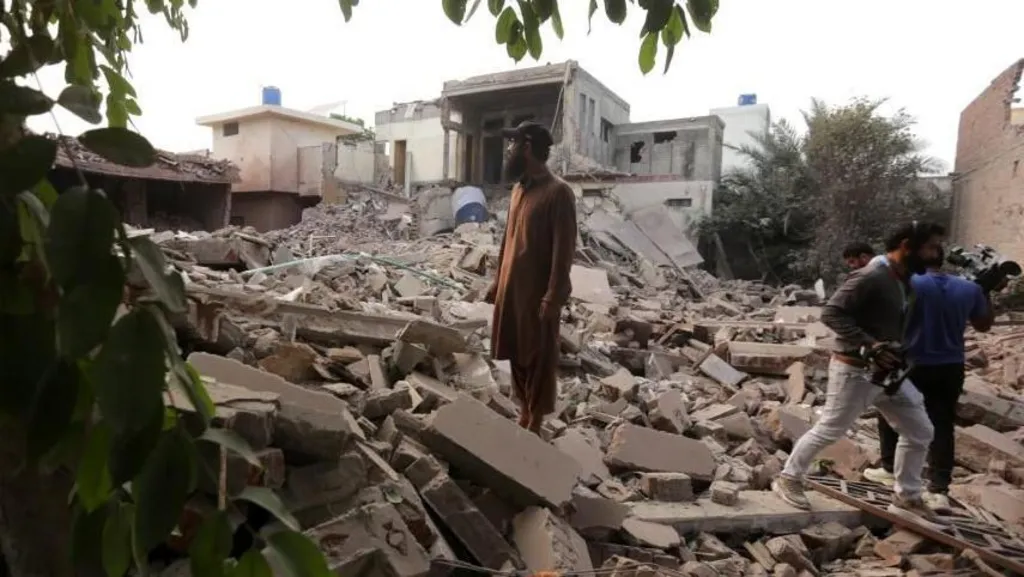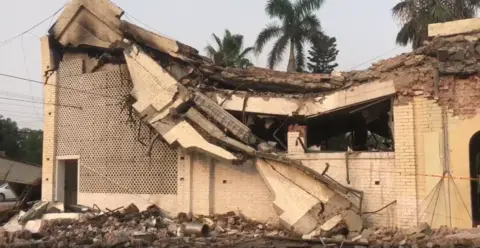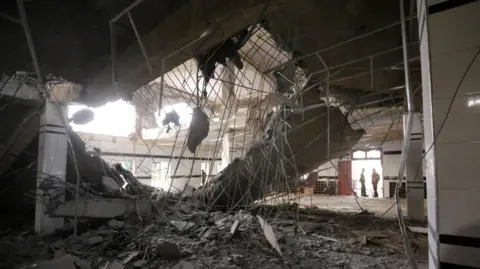
 EPA
EPAOn Wednesday morning, dozens of people gathered on the perimeter of a sprawling complex in the Pakistani city of Muridke to see the damage for themselves.
Overnight, Indian missiles had pounded buildings at this site, which lies not far from the border with India in Pakistan's Punjab region, and just a short drive from the major city of Lahore.
No one was being allowed into the complex - but even from a distance as BBC reporters peered through the barbed wire fence surrounding it, the damage was unmistakable.
The BBC spoke to people on the ground who witnessed the bombardment first-hand.
"It was the main mosque that got targeted," one man said. "The sky lit up and it felt like the sky turned red."
Another said: "A sudden missile appeared and there was a blast. I immediately got out the house.
"I had only reached the mosque near my house when there were three more consecutive blasts. I heard all three, they were really loud."
When a BBC team arrived in Muridke, security service personnel were closely controlling access to the site.
 BBC Urdu
BBC UrduFrom a road surrounded by dense housing, the BBC's team could see a partially collapsed building and rubble spread over a huge area.
Emergency workers were still searching the wreckage for any injured or dead.
This complex houses a hospital, school and mosque, while India said it had hit sites linked to what it calls terror organisations - so why was it targeted? The answer appears to lie in its past.
Until a few years ago, it was originally used by Lashkar-e-Taiba (LeT), a Pakistan-based militant group which is designated as a terror organisation by the United Nations.
It was later used by Jamaat-ud-Dawa, which observers have described as a front group for LeT.
Both groups have been banned by the Pakistani government, which has since taken over the facilities in Muridke.
 EPA
EPABut on Tuesday night, this complex was in the crosshairs of an Indian military which has vowed to respond to the killing of tourists in Indian-administered Kashmir last month.
India's government says its strikes in Pakistan and Pakistan-administered Kashmir targeted what it described as terrorist infrastructure. Pakistan's government has denied any links to the Pahalgam attack.
One man told us the Muridke complex usually houses children from miles around who come to study at the madrasa, though it was largely evacuated a week ago.
Later in the day, camera crews were allowed to access the site and see the damage up close.
The roof of one building had crumpled under the force of an explosion.
Holes had been torn through the walls of another and a large amount of debris was scattered across the ground.
Across this region, people are hoping there is not more debris before long.